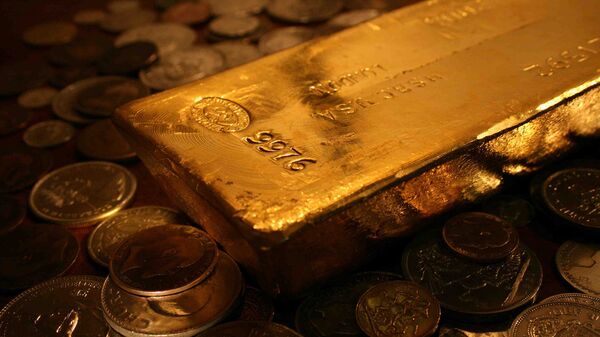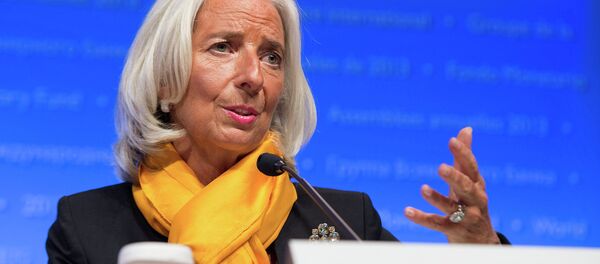Figures from the World Gold Council revealed that the first three months of 2015 saw the highest levels of European gold demand in recent years, with first quarter sales of gold bars and coins in Germany jumping by 20 percent from last year.
Strong retail investor demand (#gold bars/coins) in the #eurozone, in Q1 2015, notably #Germany & #Switzerland http://t.co/UvepcI9NK8
— World Gold Council (@GOLDCOUNCIL) May 15, 2015
Along with the increase in gold demand in Germany, there has also been a "double digit" spike in gold sales in France, Austria and Switzerland during the first quarter of 2015.
However, rather than gold rushes of centuries past, which were seen as an opportunity to strike it lucky and make it rich, experts suggest that modern-day efforts to buy up gold are far more cautious, and usually occur when there is concern about the potential of an upcoming economic disaster.
Many see buying gold as a sort of financial insurance effort, used by people looking to invest in assets to combat fears of a reduction in currency value.
Inflation and Money Printing Fears
Analysts have attributed the recent spike in gold demand to a concern among many European citizens about the continent's economic situation amid serious uncertainty.
At the top of the concerns is the fear of inflation, driven by the ECB's money printing experiment, aimed at stimulating the sluggish Eurozone economy.
In Q1 2015 #CentralBanks continued to be strong #gold buyers, accounting for 119t http://t.co/G1UX8EQd3c #GoldDemand pic.twitter.com/yBKFGWYmyn
— World Gold Council (@GOLDCOUNCIL) May 15, 2015
There are fears that the ECB's plans to purchase $1.3 trillion in bonds could lead to excessive money printing, and a subsequent reduction in the value of the euro.
Some analysts have suggested that the reason why Germans are buying up gold is down to the country's history, when many Germans lost what they had, following the overprinting of the country's currency after World War One, which led to hyperinflation and economic ruin for many people.
Uncertainty and Fears of a Grexit
Secondly, the ongoing uncertainty surrounding the European economy has also been put down as a reason prompting people to buy up gold bullions.
Ailing economies in the Eurozone and the fear of a potential Greek exit from the euro currency has also heightened concerns of an economic collapse in Europe, which experts say is contributing to the increase in gold sales.
#Gold Bullion Buying In #Germany Surges Due To Growing Risk http://t.co/RynHeCtF4z pic.twitter.com/7bLDnP9rhg
— Mark O'Byrne (@MarkTOByrne) May 15, 2015
The concern over European economics is closely tied to the euro currency, with new statistics revealing that there is an increasingly growing sense of concern about the viability and benefits of being in the single-currency bloc.
A recent EU survey found that citizens of EU countries that haven't yet converted over to the euro had significantly contrasting views about the benefits of the currency, with the majority of people in the Czech Republic, Sweden and Poland saying they were against introducing the currency in their respective countries.
Ukraine Crisis and Russia Sanctions Adding to Woes
Adding to the uncertainty about the euro, and seen as another factor potentially contributing to the buying up of gold is the ongoing crisis and instability in Ukraine, combined with the western sanctions on Russia.
The sanctions, which have been shown to be having a significant impact on many on the EU member states' economies have further added to the bloc's economic woes as a stalemate over the Ukraine crisis continues.
And while gold prices have remained fairly steady despite the surge in demand, experts suggest that it is only a matter of time before the spike in interest is reflected in a significant jump in price.
"It is only a matter of when, not if, the bull market resumes in light of the major instability that is being created by reckless global monetary policy, trillions of negative yielding paper and fiat currencies that continue to get abused," according to Peter Boockvar, chief market analyst at The Lindsey Group.






